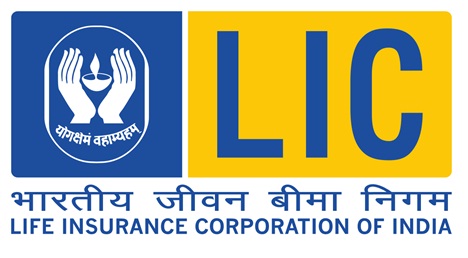 In 1956, when the life insurance industry was nationalized, Parliament directed the LIC to take the message of life insurance to every part of the country. It also directed the Government to guarantee the sums assured (including any bonuses declared) under all policies issued by, as well as those taken over by, the corporation (Sec.37 of the LIC Act).
In 1956, when the life insurance industry was nationalized, Parliament directed the LIC to take the message of life insurance to every part of the country. It also directed the Government to guarantee the sums assured (including any bonuses declared) under all policies issued by, as well as those taken over by, the corporation (Sec.37 of the LIC Act).In the Symbol of LIC Logo, there are two words.."Yogakshemam Vahamyaham" writtern in Sanskrit. This was said by Lord Shri Krishna to Arjun in Kurukshetra. It means" Your Security is My Responsibility."
Here is the proof that investment in LIC is fully secure by Central Government of India. As per Section 37 of LIC Act, "The Sum Assured by all Policies issued by the Corporation including any bonuses declared in respect thereof and, subject to he provisions contained in Section 14 the amount assured by all policies issued by an insurer the liabilities under which have vested in the Corporation under this Act, and all bonuses declared in respect thereof, whether before or after the appointed, day shall be guaranteed as to payment in cash by the Central Government"
This is the proof why LIC is the king in insurance market. Why people of India trust more on it than any other insurance company. You can compare here Monthly Business Report of IRDA.
This is Trust by the People, for the People because in every PUBLIC there is LIC. No other company can guarantee you about your invested money. Can any ??
Can any company guarantee you if they become failure in insurance business that company or any other agency/governement on behalf of that company will return your all investment along with accrued bonuses.
In service of last 61 years LIC has given security to your love one in your absence about taking care by returning all investment along with accrued bonuses and other loyalty addition (if offered) or by insurance amount to the right nominee/heir.
Over the last 60 years, the corporation has not only carried out this directive in both letter and spirit but also paid to the Government thousands of crores in the form of tax and dividend.
Read also THE INSURANCE LAWS (AMENDMENT) ACT, 2015
So, have trust and go with LIC. Call your trusted LIC Agent Pradip Roy 9958781151 / 8178662909 to book new policies.
You can Download here LIC Act.













